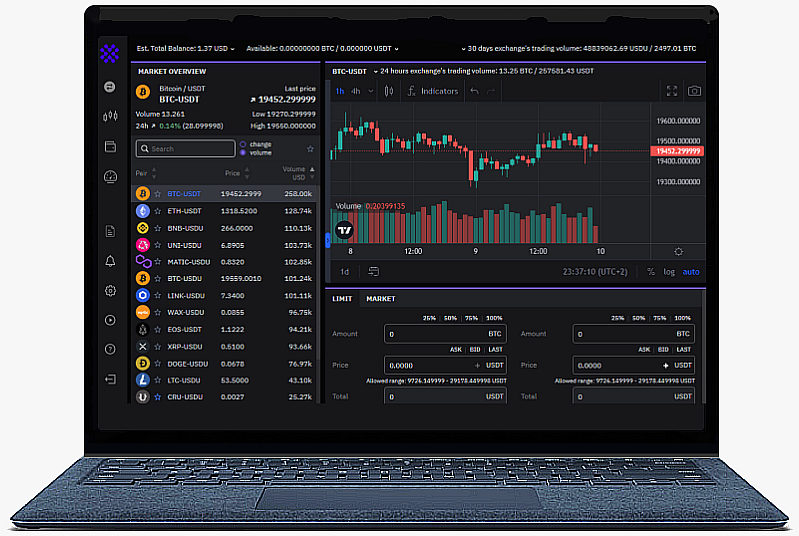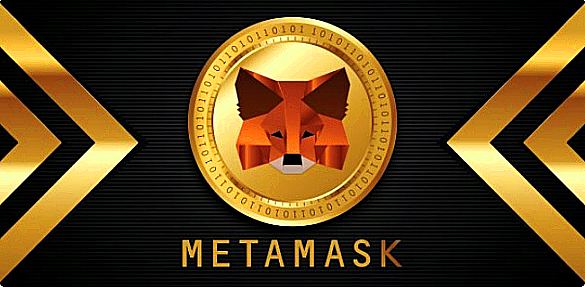Accredited InvestorsAltcoinAnatoli UnitskyAnti-Money Laundering (AML) In CryptoAPIArbitrageArtCoin TokenArticle DirectoryASICAuction Terminology GlossaryBasics of Stock Market InvestingBear MarketBest Crypto Payment Provider In the WorldBitcoinBlockchainBlockchain ConfirmationBlockchain Consensus MechanismBlockchain ForkBlockchain GlossaryBored Ape Yacht ClubBuild a Business That OutperformsBull MarketBuying SkyWay SharesByzantine Fault Tolerance (BFT) ExplainedCasascius CoinCentral Bank Digital Currency (CBDC)Centralized Crypto ExchangeCoinCoinsetCold WalletCollateralCommodity Futures Trading Commission (CFTC)Cross-Chain TechnologyCRUCrypto ExchangeCrypto GlossaryCrypto JokesCrypto Terms to KnowCrypto TickerCryptocurrencyCryptographyCryptojackingCryptounit BlockchainCryptounit GlossaryCryptounit ProgramdApp (Decentralized Application)Dead CoinDecentralized Exchange (DEX)Decentralized Finance (DeFi)Difference Between Bitcoin and EthereumDifferent Ways of Investing MoneyDigital CurrencyDistributed LedgerDo Your Own Research (DYOR)Dollar Cost Averaging (DCA)Dow Jones Industrial Average (DJIA)EncryptionERC-20ERC-721EthereumEvoScentFear Of Missing Out (FOMO)Fear, Uncertainty and Doubt (FUD)Fiat MoneyFNT Fintech CompanyGenesis BlockGlobal Unit PayGlossary of Banking TermsGlossary of Business TermsGlossary of Financial TermsHalvingHODLHot WalletHow Do I Start InvestingHow Rich is Satoshi Nakamoto?How to Create a BlockchainHow to Find Private InvestorsHow to Get Into FintechHow to Program Smart ContractsI Am Thrilled to Be a Part of This Global ProjectInitial Coin Offering (ICO)Initial Public Offering (IPO)Initial Token Offering (ITO)Innovation Basalt TechnologyInnovative Transportation TechnologiesInternational Bank Account Number (IBAN)Investing in Gold Mining StocksInvesting in Gold MiningJagerJoy of Missing Out (JOMO)Know Your Customer (KYC)LedgerLiquidity in CryptocurrencyMaker and Taker Fees in Crypto TradingMarket Capitalization (Market Cap)Meme CoinMetal Credit CardMetaMaskMillenials Now Have Access to Generational WealthMy Best Investment EverNew Digital EvolutionNFT GlossaryOff-Chain TransactionsOn-Chain TransactionsOpen Edition NFTPeer-to-Peer (P2P)Personal Loan GlossaryProbably the Best STO on the MarketProof of Stake (PoS)Real Estate Glossary of TermsReal Estate Investing GlossaryRebase TokenSecurities and Exchange Commission (SEC)Security Token ExchangesSecurity Token Offering (STO)Soulbound Decentralized Identities for Security TokensSoulbound ID Launch by Stobox Proves a SuccessSoulbound TokensStoboxStock Market GlossaryTestimonialsTether Platform and Token (USDT)UnitEx ExchangeUnitsky String TechnologiesUNTBUSDUValidatorWe Started Investing When We Were 25What are Blue Chip NFT?What are Blue Chip Stocks?What are Crypto Assets?What are Crypto Smart Contracts?What are CryptoPunks NFT?What are Digital Assets?What are Digital Collectibles?What are Gas Fees?What are Gas Wars?What are Hashmasks?What are Non Fungible Tokens?What are Non-Sufficient Funds (NSF)?What are Soulbound Tokens (SBT)?What are Stablecoins in Crypto?What are Transactions Per Second (TPS)?What are Utility NFTs?What are Utility Tokens?What Does Burning Crypto Mean?What Does Diamond Hands Mean?What Does Paper Hands Mean?What Does To The Moon Mean?What Does WAGMI Mean?What Happened to Satoshi Nakamoto?What is a 51% Attack?What is a Baby Boomer?What is a Backlink?What is a Banner?What is a Barcode?What is a Bid-Ask Spread in Crypto?What is a Block in Blockchain?What is a Block Reward?What is a Blockchain Address?What is a Blockchain Node?What is a Blockchain Oracle?What is a Blog?What is a Bond?What is a Bot?What is a Broker?What is a Business Accelerator?What is a Cash Cow?What is a Commercial Bank?What is a Commodity?What is a Con?What is a Credit?What is a Credit Limit?What is a Credit Rating?What is a Crypto Airdrop?What is a Crypto Bridge?What is a Crypto Scam?What is a Crypto Token?What is a Crypto Wallet?What is a Crypto Whale?What is a Crypto Winter?What is a Cryptocurrency Public Ledger?What is a Cryptocurrency Roadmap?What is a DAO?What is a Dark Pool?What is a Day Trader?What is a Dead Cat Bounce?What is a Default?What is a Derivative?What is a Digital Credit Card?What is a Fiscal Quarter?What is a Fungible Token?What is a Governance Token?What is a Grace Period?What is a Hard Fork?What is a Hot Wallet?What is a Hybrid Blockchain?What is a Hybrid PoW/PoS?What is a Joint Account?What is a Market Cap?What is a Merkle Tree in Blockchain?What is a Mining Farm?What is a Nonce? What is a PFP NFT?What is a POS System?What is a Prepaid Card?What is a Private Blockchain?What is a Private Key?What is a Public Blockchain?What is a Public Key?What is a Reserve Currency?What is a Ring Signature?What is a Routing Number?What is a Rug Pull in Crypto?What is a Safe Deposit Box?What is a Satoshi?What is a Security Token?What is a Seed Phrase?What is a Shitcoin?What is a Sidechain?What is a Soft Fork?What is a Spot Market?What is a State Bank?What is a SWIFT Code?What is a Tax Identification Number (TIN)?What is a Time Deposit?What is a Transaction Account?What is a Variable Interest Rate?What is a Virtual Assistant (VA)?What is a Virtual Card?What is a Virtual Currency?What is a Visa Card?What is a Whitelist in Crypto?What is a Whitepaper?What is Accounts Payable (AP)?What is AMA in Crypto?What is Amortization?What is an Accrual?What is an ACH Transfer?What is an Actuary?What is an Addendum?What is an Algorithm?What is an Angel Investor?What is an Annuity?What is an Asset?What is an ATM?What is an Atomic Swap?What is an Audit?What is an Avatar?What is an EIN?What is an Embargo?What is an Entrepreneur?What is an IDO (Initial Dex Offering)?What is an Interest Rate?What is an Internet cookie?What is an Investment Bank?What is an NFT Drop?What is an NFT Floor Price?What is an Ommer Block?What is an Orphan Block?What is an Outstanding Check?What is an Overdraft?What is Artificial Intelligence (AI)?What is B2B (Business-to-Business)?What is B2G (Business-to-Government)?What is Bartering?What is Bitcoin Dominance?What is Bitcoin Pizza Day?What is Blockchain Immutability?What is Blockchain Used For?What is BRICS?What is Business-to-Consumer (B2C)?What is C2C (Customer to Customer)?What is Capitalism?What is Catfishing?What is CFD Trading?What is Check Kiting?What is Cloud Mining?What is Communism?What is Content Marketing?What is Decentralization in Blockchain?What is DeFi in Crypto?What is Delisting?What is Depreciation?What is Digital Marketing?What is Diversification?What is Double Spending?What is Dumb Money?What is Dumping?What is Earnings Per Share (EPS)?What is Economics?What is Email Marketing?What is Equity?What is Etherscan?What is Fintech?What is Foreign currency?What is Forex?What is Fundamental Analysis (FA)?What is GameFi?What is Generative Art NFT?What is Gwei?What is Hard Currency?What is Hash Rate?What is Hashing in Blockchain?What is Inflation?What is Initial Game Offering (IGO)?What is Interest?What is Interest Income?What is Mainnet?What is Mastercard?What is Metaverse in Crypto?What is Mining in Cryptocurrency?What is Minting NFT?What is Mobile Banking?What is Money Laundering?What is NFT Alpha?What is NFT Metadata?What is NFT Rarity?What is NGMI Meaning?What is Nominal Interest Rate?What is Online Banking?What is Open-End Credit?What is OpenSea NFT Marketplace?What is Personal Identification Number (PIN)?What is Play-to-Earn?What is Polygon?What is Proof of Authority (PoA)?What is Proof of Work (PoW)?What is Public Key Cryptography?What is Pump and Dump?What is Quantum Computing?What is Refinancing?What is Retail Banking?What is Ripple?What is Sharding?What is Slippage in Crypto?What is Smart Money?What is Solvency?What is Soulbound ID?What is SSL?What is Staking in Cryptocurrency?What is Technical Analysis (TA)?What is Testnet?What is the Ask Price?What is the Better Business Bureau (BBB)?What is the Bid Price?What is the Dark Web?What is the InterPlanetary File System (IPFS)?What is the Gold Standard?What is the Lightning Network?What is the Prime Rate?What is the Sandbox?What is the Secondary Market?What is the World Bank?What is Tier 1 Capital?What is Tokenomics?What is TRC-20?What is Universal Banking?What is Unspent Transaction Output (UTXO)?What is Usury?What is Volatility in Crypto?What is Wash Trading?What is Web3?What is Whisper?What is XRP?What is Zero-Knowledge Proof (ZKP)?Who is Beeple?Who is Satoshi Nakamoto?Who is Vitalik Buterin?Why Tokenization is a Safe HavenWhy You Should Try Your Hand at Trading
API
- Home
- Crypto Glossary
- API
An API, or application programming interface, is a piece of code that allows two apps to communicate data.

A nice example of an API is a hotel booking aggregation site. In response to a customer's request, the aggregator site uses APIs to retrieve information from several hotel companies.
For example, a customer may inquire for available rooms that fulfill specified criteria such as the start and finish date of the stay, geographical location, and pricing. This data is transmitted to the hotel's systems via an API, which converts the request into a format that the hotel servers can comprehend. These systems then respond via the API with the available rooms that meet these requirements.
Despite the fact that the aggregator site and the hotel system are constructed with different technologies and by separate firms, the API allows information to be transferred fast and efficiently.
In this case, the hotel is the API provider. It has created the API to allow other Apps to access the information. The hotel uses this to make it easier for users to learn about available rooms. The API is used by the aggregation site. It uses the API because obtaining the data it requires would be either impossible or time-consuming without one.
What Are the Applications of APIs?
APIs enable developers to reuse existing functionality and data rather than creating it from scratch. For example, using the Google Maps API to display the location of a business or restaurant saves the developer from having to create or write map features from scratch. This saves a lot of time and money.
APIs exist anywhere various pieces of software need to interact, and many of them are free to use since making data public is beneficial for business. Blockchain, for example, provides free APIs for developers to utilize on their websites and applications to access Bitcoin payment processing, wallet services, transaction data, and market statistics.
APIs are also provided by cryptocurrency exchanges. Traders can use these APIs to feed market data to trading bots, allowing them to execute trades on their behalf (based on predefined instructions). This is referred to as algorithmic trading (or bot trading).
The Use of API in Crypto
The world of crypto has come a long way since the creation of Bitcoin in 2009. Today, cryptocurrencies have become a mainstream form of investment and payment, and the technology behind them has advanced dramatically. One of the most significant advancements has been the development of API.
In crypto, APIs allow developers to access data and perform actions on the blockchain, such as sending and receiving transactions, checking the status of a wallet, and retrieving real-time market data.
APIs are essential for the growth of the crypto industry as they provide a seamless way for developers to build decentralized applications (dApps) that run on blockchain technology. This allows for greater innovation and growth in the crypto space, as developers can easily access the underlying technology and create new products and services.
One of the most popular use cases for APIs in crypto is the creation of crypto exchanges. Many leading exchanges, such as Binance, Coinbase, and Kraken, provide APIs that allow developers to access market data, place orders, and manage their portfolios. This makes it easier for traders and investors to access the crypto markets, and it has also led to the development of trading bots, which automate the buying and selling of cryptocurrencies based on market conditions.
APIs have also been crucial in the development of DeFi (Decentralized Finance) applications. DeFi is a growing segment of the crypto industry that offers financial services, such as lending, borrowing, and investing, on the blockchain. APIs allow developers to access these services and build new ones, leading to the growth of the DeFi ecosystem.
Another important use case for APIs in crypto is the creation of wallets. Many wallets, such as MetaMask and MyEtherWallet, provide APIs that allow developers to access and manage their crypto assets. This makes it easier for users to use and manage their cryptocurrencies, and it also allows for the creation of new wallet applications that provide added features and functionality.
In conclusion, APIs have been a critical driver of innovation and growth in the crypto industry. They provide developers with access to the underlying technology, enabling the creation of new products and services that benefit the entire crypto ecosystem. As the industry continues to grow and evolve, APIs will continue to play a significant role in shaping its future.
Related Articles

Blockchain
Blockchain is a continually growing digital database. A list like this is composed of numerous data blocks that are organized chronologically, linked, and protected by cryptographic proofs.

UnitEx Exchange
The UnitEx trading platform is registered in Estonia according to strict Estonian financial regulations and has obtained a Virtual Currency Service Provider license from the Financial Intelligence Unit. The license covers exchange operation of crypto-fiat and crypto-crypto, as well as cryptocurrency wallet management.

dApp
Applications known as dApps (Decentralized Applications) operate on a blockchain network, which is a distributed computing technology.

Decentralized Finance (DeFi)
Decentralized Finance, DeFi for short, is a new means of providing financial services to the public, generally without the need of a middleman.

MetaMask
MetaMask is a well-known cryptocurrency wallet that supports a wide variety of Ethereum-based tokens as well as non-fungible tokens (NFTs) on supported blockchains. While experienced crypto investors may appreciate the...
- Home
- Crypto Glossary
- API